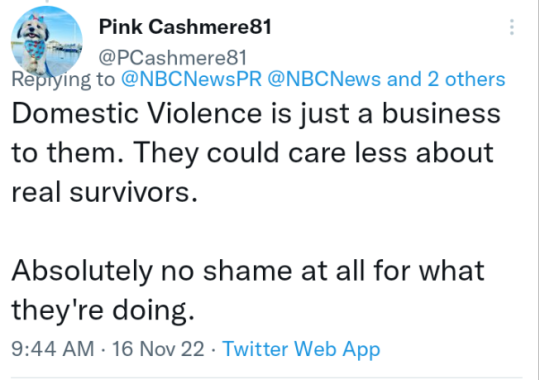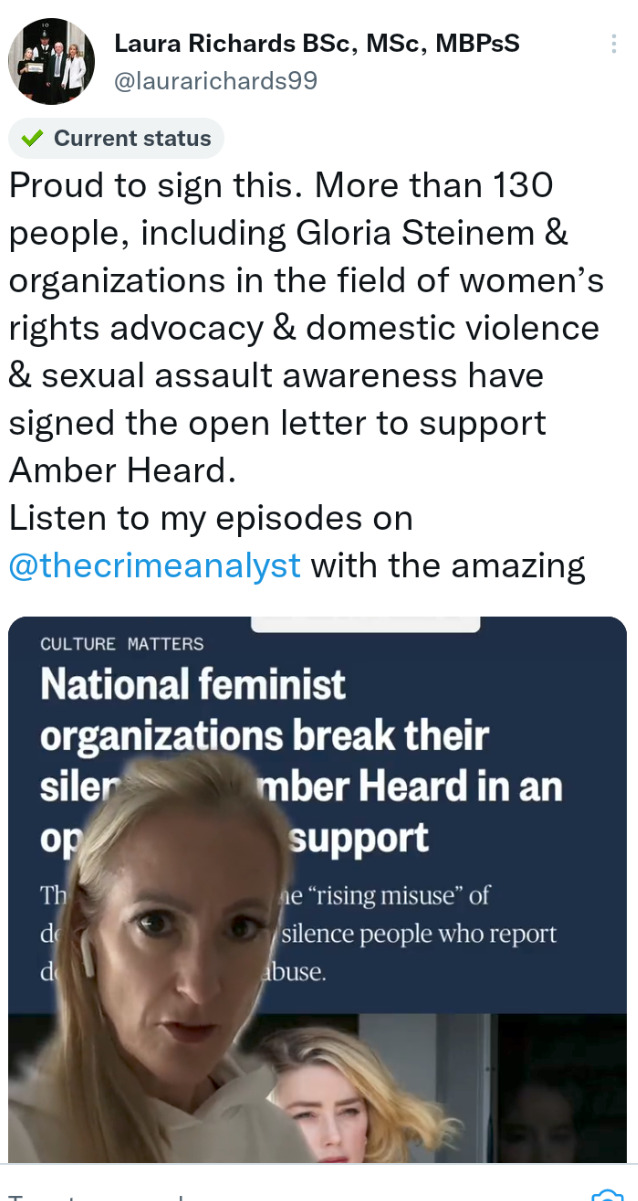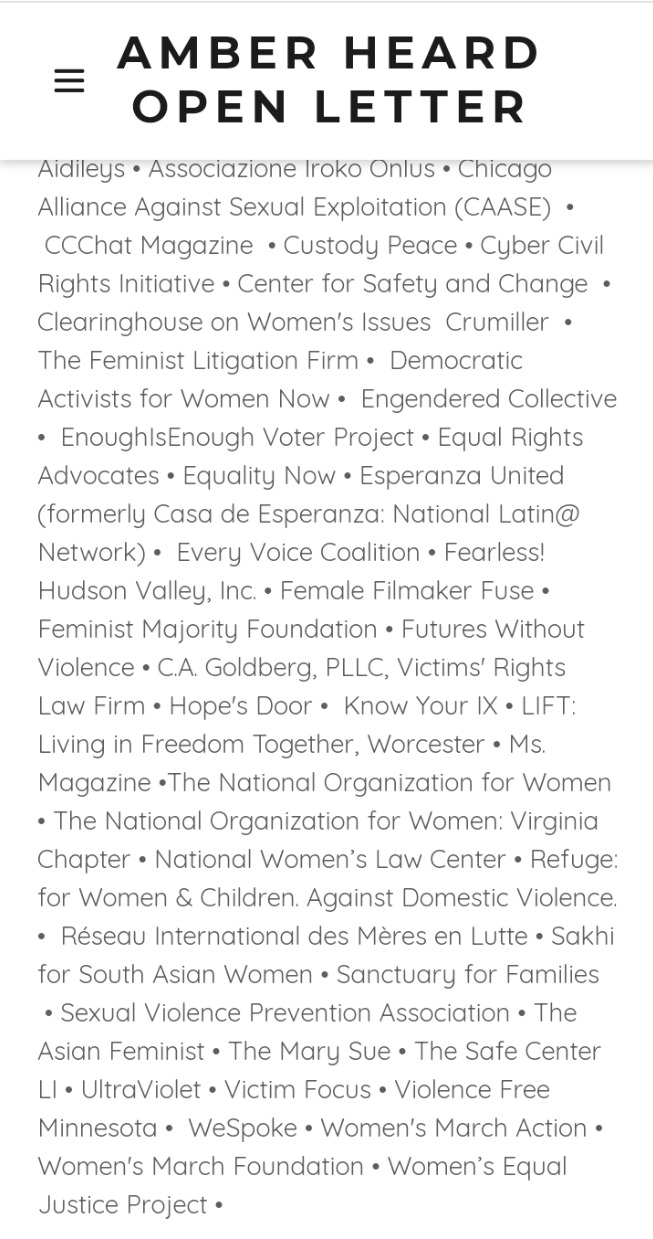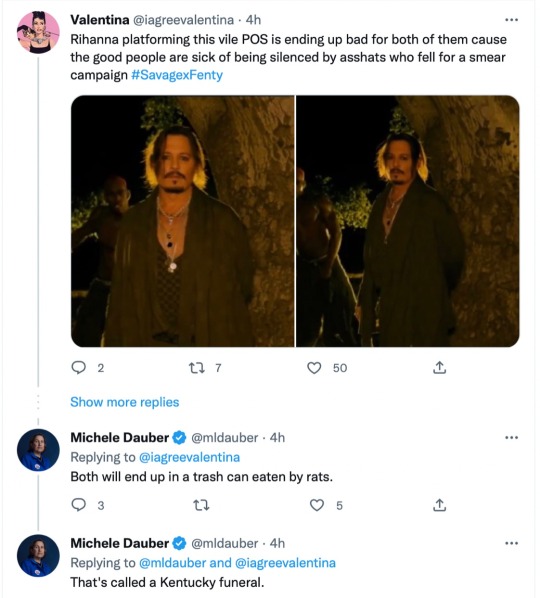#ccchat
Explore tagged Tumblr posts
Text
ccchat..... mitch x doan... mitch x doan...,,, what would their ship name be.....


these two.... mitch x doan... literal stoner x a normal guy.... mitch x doan.......
#mitch papa louie#papa's tacomia mitch#papa louie mitch#papa louie#papa's tacomia#papa's pastaria#doan papa louie#papa louie doan#papa's pastaria doan#papa louie ship
13 notes
·
View notes
Text
I ii I I I LiED abOuT THE CHIP THING OKAY IM JUST WAAAAAAAAAAAAAAAAAAAAAAAAAAAAAA IM NT DOIN SO WELL ccCHat WAAAAAAAAAAAAAAAAAAAAAAA🌊🌊🌊water emoji emoji 🌊🌊🌊
Wait wait wait wait wait I’m getting something… uh huh, yep, ye
yeah okay I’m gonna need another 2 or so months I’m just out of chips be back in not a sec‼️
11 notes
·
View notes
Text
No tienes con escribir, yo tampoco
2 notes
·
View notes
Text
The Effective Use of Detentions
The Effective Use of Detentions
An article by Richard James Rogers (Author of The Quick Guide to Classroom Management)
Illustrated by Pop Sutthiya Lertyongphati
He opened his laptop and started playing around, again. I hadn’t quite noticed until I’d gotten the rest of this Year 7 class to get their books open and start completing the questions that were on the whiteboard.
It took a good five minutes for them all to settle down.
View On WordPress
#&039;A&039;-Levels#ACF#android#app#apple#army cadet force#army cadets#arnoldlobel#assessment#author#bameed#behavior#behaviour#bigdata#BlendedLearning#book#camera#careers#CCChat#CCSS#classroom#classroom management#codes#colleagues#CommonCore#CompetencyEd#Curriculum#DeeperLearning#differentiated learning#differentiation
1 note
·
View note
Text
Love is the lump of your throat before you throw up. Love is the sting of a sunburn against your jacket. Love is the moment of panic as your consciousness slides away before sleep. Love is the stab of fear when you see something shift at the edge of your vision. Love is the quiet you keep when you swear you heard footsteps near your camp.
1 note
·
View note
Text
"More than 130 people, including Gloria Steinem, and organizations in the field of women’s rights advocacy and domestic violence and sexual assault awareness have signed an open letter to support Amber Heard, who lost a defamation suit this year brought by her ex-husband, Johnny Depp, for an op-ed in which she said she was a “public figure representing domestic abuse.”
The letter, which was exclusively shared with NBC News ahead of its public release Wednesday, was signed by groups like the National Organization for Women, the National Women’s Law Center, Equality Now and the Women’s March Foundation. It was written by a group of people who identify as domestic violence survivors and supporters of Heard."







ORGANIZATIONS
Aidileys • Associazione Iroko Onlus • Chicago Alliance Against Sexual Exploitation (CAASE) • CCChat Magazine • Custody Peace • Cyber Civil Rights Initiative • Center for Safety and Change • Clearinghouse on Women's Issues Crumiller • The Feminist Litigation Firm • Democratic Activists for Women Now • Engendered Collective • EnoughIsEnough Voter Project • Equal Rights Advocates • Equality Now • Esperanza United (formerly Casa de Esperanza: National Latin@ Network) • Every Voice Coalition • Fearless! Hudson Valley, Inc. • Female Filmaker Fuse • Feminist Majority Foundation • Futures Without Violence • C.A. Goldberg, PLLC, Victims' Rights Law Firm • Hope's Door • Know Your IX • LIFT: Living in Freedom Together, Worcester • Ms. Magazine •The National Organization for Women • The National Organization for Women: Virginia Chapter • National Women’s Law Center • Refuge: for Women & Children. Against Domestic Violence. • Réseau International des Mères en Lutte • Sakhi for South Asian Women • Sanctuary for Families • Sexual Violence Prevention Association • The Asian Feminist • The Mary Sue • The Safe Center LI • UltraViolet • Victim Focus • Violence Free Minnesota • WeSpoke • Women's March Action • Women's March Foundation • Women’s Equal Justice Project •

INDIVIDUALS
Renée B. Adams,
Professor, University of Oxford
Dr. Esohe Aghatise,
Executive Director, Associazione Iroko Onlus
Cheryl A. Alexander,
L.I.C.S.W., RMT
Aisha Ali-Khan,
British Women’s Rights Campaigner, Women United Organisation
Sara Ahmed,
Independent Scholar, Author, “Complaint!”
Kate Amber,
PgCert, Founder, End Coercive Control USA
Dr. Adrienne Barnett,
Reader in Law, Brunel Law School, Brunel University London
Dr. Nicole Bedera,
Sociologist
Nicole Bell,
Founder and CEO, LIFT Living in Freedom Together
Panayiota Bertzikis,
CEO/Founder Military Rape Crisis Center
Amy Betts,
Founder of Aidileys - Rights, Family Court Information Services
Antoinette Bonsignore, J.D.,
Legal and Prosecutorial Analyst, Case Systems Training Review Program, Washington State Criminal Justice Training Commission
Anna Boucher,
Associate Professor in Public Policy and Political Science (LSE) and admitted Solicitor, Supreme Court NSW, Australia
Lindsey Boylan,
Women’s Rights Activist
Dr. Stephanie Ann Brandt MD,
Faculty and Chairman, Ethics Committee, New York Psychoanalytic Institute New York, NY, Clinical Assistant Professor of Psychiatry, Weill Cornell Medical College, New York, Experienced Forensic Evaluation and Testimony in Family, Supreme and Federal ( EDNY + SDNY ) Child focused Litigation
Susan J. Brison,
Eunice and Julian Cohen Professor for the Study of Ethics and Human Values, Dartmouth College
Professor Ann Bartow,
University of New Hampshire School of Law.
Laura S Brown, Ph.D.
ABPP, psychologist in private practice, past President, APA Division of Trauma Psychology and Society for The Psychology of Women
Dr. Kari Brozowski
Associate Professor, Wilfrid Laurier University
Twiss Butler,
Feminist
Rachel Camp,
Professor from Practice and Co-Director, Georgetown University Domestic Violence Clinic (title for identification purposes only)
Nancy Chi Cantalupo,
Associate Professor of Law, Wayne State University Law School (title and institution provided for identification purposes only)
Kali Casab,
The Voices and Faces Project
Lauren B. Cattaneo,
Associate Professor, Department of Psychology, George Mason University
Gillian Chadwick,
Professor of Law, Washburn University School of Law
Debra Chopp,
Clinical Professor of Law, University of Michigan Law School
Seo-Young Chu
Associate Professor Queens College, CUNY
Andrew Thomas Cicchetti,
Ph.D. LCSW-R
Dr. Christine Marie Cocchiola,
DSW, LCSW Coercive Control Advocate, Educator, Researcher & Survivor
J.V. Connors
Ph.D. New Mexico licensed psychologist
Dr. Elizabeth Dalgarno,
SHERA Research Group
Michele Landis Dauber,
Frederick I. Richman Professor of Law, Stanford Law School (title and institution for identification purposes only)
Ella Dawson,
Author
Drew Dixon,
Producer, Activist
Margaret B. Drew,
Associate Professor of Law, UMass Law School
Prof. Dr. Jennifer Drobac
Danielle Pelfrey Duryea
Boston University School of Law (institution for identification purposes only)
Erin Dwyer-Frazier,
Attorney and Domestic Violence Advocate
Heidi Eilers, Ph.D.,
BCBA-D, CCTP, Board Certified Behavior Analyst-Doctoral, Certified Clinical Trauma Professional
Aliaa Magda Elmahdy,
Egyptian internet activist and women's rights advocate
Deborah Epstein,
Agnes Williams Sesquicentennial Professor of Gender, Violence, and Law, Georgetown Law University Center
Ray Epstein,
President/Founder of Student Activists Against Sexual Assault at Temple University
Heidi Li Feldman,
Professor of Law, Georgetown University Law Center
Bill Flack,
Professor of Psychology, Bucknell University
Professor Michael Flood
Queensland University of Technology
Terry Forliti,
Communication Coordinator for Upside Sex Trafficking Initiative, Minneapolis, Minnesota
Jaclyn Friedman,
editor of “Yes Means Yes” and “Believe Me”
Professor Aisha K. Gill, Ph.D.
CBE | Professor of Criminology
Professor Leigh Gilmore,
Ohio State University, Author, “The #MeToo Effect: What Happens When We Believe Women”
Lisa Goodman,
Ph.D., Professor, Boston College
Leigh Goodmark,
Marjorie Cook Professor of Law and Co-Director, Clinical Law Program
Cynthia A. Graham,
PhD, C. Psychol, Professor of Sexual and Reproductive Health
Gretchen Grappone,
LICSW PTSD Clinician & Trainer
Julie Green,
Research Assistant, Violence Against Women and Children team, Department of Social Work, The University of Melbourne
Min Grob,
Founder CCChat Magazine
Kit Gruelle,
Advocate, Survivor, Film Subject for HBO Documentary Private Violence
Emiliana Guereca,
Founder and Executive Director Women's March Action and Women's March Foundation
Kayla Harder
Founder, Survivors Righting Wrongs
Yasmeen Hassan,
Global Executive Director, Equality Now
Tirion Havard,
Associate Professor, England UK
Judith L. Herman, M.D.,
Professor of Psychiatry (Part Time), Harvard Medical School
CarlLa Horton, M.P.A.,
Executive Director, Hope’s Door
Emily Mia Hughes-Smith,
MBACP. BSc(hons) dip. Sup
Doreen Hunter,
Co-Founder, Americas Conference to End Coercive Control (ACECC)
Holly Jacobs, PhD
Founder, Board Member, Cyber Civil Rights Initiative
Hans Johnson,
President, East Area Progressive Democrats
Sheherezade Kara
International Human Rights Jurist and Consultant, human-writes.org
Dr. Emma Katz, Ph.D.,
Senior Lecturer, Liverpool Hope University, UK
Mara Keire
Senior Research Fellow, Rothermere American Institute, University of Oxford, UK
Dr. Margaret Kertesz,
Senior Research Fellow, University of Melbourne
Farrah Khan,
CEO Possibility Seeds
Amanda Kippert,
Editor-in-Chief, DomesticShelters.org, Co-Host, Toxic the Podcast
Judge Judy Harris Kluger,
Executive Director, Sanctuary for Families
Dean Laurie Kohn,
George Washington Law School
Kellyann Kostyal-Larrier,
Executive Director, Fearless! Hudson Valley, Inc.
Dr. Ingeborg Kraus,
Clinical Psychologist, Psychotraumatologist
Lauren Krouse,
Writer & Survivor-Victim Advocate
Afsana Lachaux,
Activist & British Women’s Rights Campaigner.
Dr Rhiannon Lane,
Research Fellow in Sociology, Cardiff University
Julianna Lee,
Clinical Assistant Professor of Law, University of Michigan Law School
Geraldine Lee-Treweek ,
Professor of Social Justice at Birmingham City University, UK, specialist in Abuse Studies and Psychotherapist.
Dorchen A. Leidholdt, Esq.,
Director, Center for Battered Women’s Legal Services at Sanctuary for Families
Edward Lloyd,
Evan M. Frankel Clinical Professor Emeritus in Environmental Law, Columbia University School of Law
Dr. Laura E. Ludtke,
Independent Scholar
Linda MacDonald,
Persons Against Non-State Torture, co-author "Women Unsilenced Our Refusal To Let Torturer-Traffickers Win"
Catharine A. MacKinnon,
Elizabeth A. Long Professor of Law at Michigan Law, and the long-term James Barr Ames Visiting Professor of Law at Harvard Law School (all titles for identification purposes only)
David Mandel,
Executive Director, Safe and Together Institute
Jane Manning,
Director, Women’s Equal Justice Project
Omny Miranda Martone,
Founder & CEO of Sexual Violence Provention Association
Joan Meier,
National Family Violence Law Center, Professor of Clinical Law, George Washington University Law School
Carolyn Modeen,
Sun Cities West Valley NOW
Amy Myers,
Acting Director, Gender Justice Clinic, Washington College of Law (for identification purposes only)
Natalie Nanasi,
Associate Professor, SMU Dedman School of Law, Director, Judge Elmo B. Hunter Legal Center for Victims of Crimes Against Women
Laura Beth Nielsen, JD, Ph.D.,
Professor & Chair, Department of Sociology, Northwestern University, Research Professor, American Bar Foundation, President, Law and Society Association, Author, “License to Harass: Law, Hierarchy, and Offensive Public Speech” (titles for identification purposes only)
Emer O'Toole, Ph.D.,
Professor, Concordia University
Natalie Page,
#TheCourtSaid Founder, Survivor Family Network Director
David Palumbo-Liu,
Louise Hewlett Nixon Professor, Stanford University
Reena Parikh,
Director of Civil Rights Clinic, Boston College Law School (title for identification purposes only)
Moira Penza,
Attorney, Former federal prosecutor, Eastern District of New York; led NXIVM investigation and trial
Jaime Cabeza Pereiro,
Professor of Labor and Social Security Law, University of Vigo
Mary Peterson,
PhD candidate & Activist Specialising in Fighting Sexual Harassment in Academia
Alison Phipps,
Professor of Sociology, Newcastle University
Christie Pitts
Alexa Polar,
Writer, Producer, Director & Founder of Female Filmakers Fuse
Nicole Prause, Ph.D.,
Senior Statistician, University of California, Los Angeles (title for identification purposes only)
Dr. Charlotte Proudman,
Barrister and Academic
Dr Shivaun Quinlivan
Associate Professor, University of Galway
Professor Tracey Raney,
Toronto Metropolitan University, Toronto, Canada
Anne K. Ream,
Activist and Founder of The Voices and Faces Project
Laura Richards
BSc, MSc, MBPsS, Criminal Behavioural Analyst
Jennifer Robinson,
Australian human rights lawyer and barrister at Doughty St Chambers, U.K. counsel to Amber Heard, author of How Many More Women?
Diane Rosenfeld,
Lecturer on Law, Director, Gender Violence Program, Harvard Law School
Lily Kay Ross, MDiv, Ph.D.
Feminism and Ethics Research Fellow, Psymposia
David A. Santacroce,
Clinical Professor of Law, University of Michigan Law School
Jeanne Sarson,
co-author, “Women Unsilenced Our Refusal To Let Torturer-Traffickers Win,” Co-Founder Persons Against Non-State Torture.
Purna Sen,
Ph.D. Visiting Professor, Child and Woman Abuse Studies Unit, LMU Special Advisor to the Prosecutor at the International Criminal Court
Dr. John Simister,
Ph.D., Domestic Violence and Economics Researcher, Senior Lecturer, Business School Manchester Metropolitan University
Ann Simonton,
Founder Director of Media Watch: For Improving image of Women in Media
Rita Smith,
National Expert on Violence Against Women, Former Executive Director of the National Coalition Against Domestic Violence (NCADV)
Rachel Louise Snyder,
Professor, American University, Author, “No Visible Bruises”
Evan Stark, Ph.D., MSW,
Professor Emeritus, Rutgers University
Gloria Steinem,
Writer, Activist
Leslie Morgan Steiner,
Advocate, Author, “Crazy Love”
Ruth Silver Taube,
Adjunct Professor of Law, Santa Clara University, Legal Services Co-Chair, South Bay Coalition to End Human Trafficking, Delegate, Santa Clara County’s Human Trafficking Commission (all titles for identification purposes only)
Dr. Jessica Taylor,
Chartered Psychologist, CEO of Victim Focus
Alison Turkos,
Survivor + Advocate
Vanessa Tyson,
Associate Professor of Politics, Scripps College
Robin West, J.D.,
Professor of Law, Georgetown Law School
Merle Weiner, Philip H. Knight Professor of Law, University of Oregon (title for identification purposes only)
Constance Wu,
Actor and author
Sophia Yen, M.D.,
Adolescent Medicine Specialist, CEO/Founder of Pandia Health
Amy Ziering,
Filmmaker
SO MANY ORGANIZATIONS ARE MERELY FRONTS FOR VARIOUS AGENDAS OR TAX SCAMS. AT LEAST NOW I KNOW WHY WRITERS FROM THE MARY SUE HAVE JOINED IN HARASSING BENEDICT CUMBERBATCH. AMBER HEARD IS A TRAINED PROSTITUTE/KOMPROMAT COLLECTOR.
3 notes
·
View notes
Text
Best CRM for Higher Education 2019
The success of schools and colleges depends on the way they communicate and manage relationships with the primary groups such as alumni, students, teachers, parents, and other staff. Governing colleges and schools is no easy task. However, with the introduction of CRM, educational organizations have access to an easy way of managing administrative operations, processes, and data. But what is CRM for higher education?

Best CRM for Higher Education
Customer Relationship Management (CRM) for higher education is an idea tool that most schools and colleges have implemented to boost their outcome. It is a technology that gives an easy way for educational institutions to measure the effectiveness of their management more accurately. It allows educational organizations to automate a specific percentage of their follow-up processes and keep track of leads.
But which are the best CRMS for high education to implement today? What are their advantages and disadvantages? How do they differ from one another? Read on to get more information about the top higher education CRM software comparison.
1. Salesforce for Higher Education
Salesforce is one of the top-rated CRMS for higher education that brings alumni, students, teachers, parents, and other staff together. It is the most preferred integrated CRM platform that gives the various departments of any educational institution a single, shared view of every primary group.
Salesforce high education CRM delivers personalized experiences to the various departments of schools and colleges by using an integrated CRM platform, which they identify as 'Salesforce Customer 360.' This platform provides powerful and connected products that allow the educations institutions to improve their alumni relations and marketing and campaign management.
Schools and colleges can now automate the time-consuming projects with the Salesforce Customer 360. They can use the Salesforce platform to build custom apps, hence make their dreams a reality.
Pros
• Five-star support and customer service
• Intuitive and user-friendly CRM software.
Cons
• It can be too expensive for smaller institutions
2. CloudCC CRM for Higher Education
CloudCC Education Cloud. is another top-notch CRM that works best for higher education and institutes. It allows schools and colleges to process everything from an online platform. This comprehensive platform is the right choice for educations institutions since it helps their working efficiencies at a fast pace as per their needs and on time.
The primary advantage of this CRM platform is its single click feature which saves the managing team of a specific institution from paper works. Other than this, CloudCC Education Cloud remains to be the perfect option since it provides the schools and colleges with an affordable plan that can meet all their needs.

Pros
• Easy to Use and Cost-effective
It is a user-friendly and explicit interface that makes it possible for the educational organizations to handle their working routines with less-hassle. Used via the internet and it does not additional costs for IT service, licensing and procurement.
• Comprehensive Management for Faculty, Student and Learning
CloudCC Education Cloud features an in-depth faculty management system which improves the efficiency of teachers when it comes to teaching and recruitment. Other this, this CRM system helps a lot in course allocation as it enhances its effectiveness and rationality. Also, unlimited on-demand customization is another feature that colleges and schools can enjoy whenever using this CRM system.
• Helpful customizable functions
CloudCC Education Cloud comes with convenient, customizable CRM features, which will help the schools and colleges to achieve their goals. There is the recruiting application which includes several functions like recruitment application. This app will help the institution in enhancing its student recruitment process.
Also, there is the workflow function that you can set according to your process need and this will help the school or college in performing different actions automatically. It is a great feature when it comes to sending notifications, assigning tasks, and updating fields.
• Useful collaboration tools
CloudCC Education Cloud comes with excellent features which improve their form of communication between faculty, students and departments. These includeCCChat ,Appointments and File functions and. They work as top-notch communication tools, which make it for the various groups of a specific school or college to corporate and exchange data online.
Powerful Mobile CRM
With this feature, you can schedule meetings with the students, alumni, teachers, and parents. Also, powerful mobile CRM help you plan accordingly and manage your time. Also, the feature enhances real-time summary. You can easily view the students' reports and performance.
Cons
The system will be more compatible if it integrates more educational tools.
3. Microsoft Dynamics 365 for Higher Education
Microsoft Dynamics CRM higher education provides schools and colleges with an easy way of managing students, parents, teachers, and alumni. Also, it works great when it comes to recruitment and marketing. It offers a single shared 360 view to the major groups of the educational institutions. Other than this, it features several essential tools that help the educational organizations to manage the requests of students and supporters.
Microsoft Dynamics CRM for higher education contributes a lot when it comes to recruiting students. It helps the schools and colleges to deliver a five-star student experience and process applications efficiently. Through this CRM platform, it becomes easy for educational institutions to make strategic decisions and identify potential problems.
Pros
• Enhances peace of mind
• Prepare the systems for future growth
• Flexible deployment
• Speedier ROI
Cons
• Works better for Microsoft Systems
4. Talisma CRM for Higher Education
Talisma is the best CRM for higher education that helps schools and colleges to make informed decisions. It helps them improve services to alumni, parents, and students, and enhance their hiring and retention process. It is a highly adaptable CRM platform that's capable of reducing costs and improves services to students and institutional supporters.
Talisma CRM for higher education powers schools and colleges to accurately, effectively, and quickly communicate with students, parents, teachers, alumni, and other supporters. It facilitates the flow of work across various departments with the institutional organizations by using multichannel communication strategy. With the help of this CRM platform, educational institutions can speed up their growth. Talisma CRM for higher education makes this a reality by helping schools and colleges to create personalized experiences with students, parents, teachers, and other key groups.
Pros
• It is affordable
• Features excellent color scheme
• It is easy to log in comments on the donor files
Cons
• The overall layout is not intuitive
5. Connect CRM For Higher Education
Connect CRM is a top-rated CRM platform that works best for colleges and universities. With this CRM platform, every educational institution can manage enrolment and admissions of students with less hassle. It makes this a reality by collecting details relating to the students, monitoring all the applications, and tracking the receipt associated with the application documents.
Connect CRM makes it easy for the admissions representatives to manage follow-up with the students and ensure they have access to all enrolment data needed. Other than this, this CRM platform helps the admissions directors assign tasks, monitor the results, and manage admissions teams in the best way possible.
Pros
• Features modern communication tools
• 24/7 access
• Enhances a simplified application process
Con
s
• Requires a process-driven educational institution
Conclusion
The top CRM for higher education like CloudCC and others mentioned above offer a variety of functionality meant to allow the educational institutions to manage students and supports more effectively. Educational organizations can use them in processing and analysing information of the key groups. So choose the only wisely!
Related Articles
What is CRM for higher education and how to choose one? What is faculty management system? 6 Best Faculty Management Systems for Higher Education
Article from:https://www.cloudcc.com/en/blog/best-crm-for-higher-education-2019.html
#best crm for higher education#top crm for higher education#higher education crm software comparison
0 notes
Photo

Re-releasing The Sitter tee at teespring.com/notyoursitter_english 👶Place it on yourself, your co-worker, or put one on someone you know. Let this year be a year of EDUCATION not BABYSITTING #change #saveourkids #edchat #edleaders #edu #education #educhat #parents #principals #student #students #teacher #teachers #superintendents #blendedlearning #competencyed #cbe #curriculum #deeperlearning #designthinking #formativeassessment #formativechat #hqpbl #growthmindset #makered #masterychat #masterybased #pbl #pblchat #personalizedlearning #placebaseded #plearning #projectbased #classroomdesign #charterschools #communityengagement #learnerexperience #makerspace #montessori #publicschools #schoolculture #studentcentered #studentchoice #studentengagement #studentled #studentvoice #21stcenturyskills #21stedchat #digitalcitizenship #globaled #globaledchat #growtmMindset #sel #smartplanet #digln #edapp #eddata #edtech #edtechchat #eduvc #elearning #achievementgap #edgap #edequity #educolor #ells #artsed #compsci #coding #cte #engchat #historyteacher #langchat #literacy #math #mathchat #musedchat #physed #socialstudies #sschat #scichat #stem #stemchat #collaborativepd #lifelonglearning #ntchat #onlinelearning #personalizedpd #pln #profdev #ptchat #teacherpd #ccchat #ccss #commoncore #edpolicy #edreform #essa #earlyed #elemschool #highered #highchool #k12 #middleschool #preschool https://www.instagram.com/p/BnPuRDbl3Cx/?utm_source=ig_tumblr_share&igshid=125c1rfh6zycz
#change#saveourkids#edchat#edleaders#edu#education#educhat#parents#principals#student#students#teacher#teachers#superintendents#blendedlearning#competencyed#cbe#curriculum#deeperlearning#designthinking#formativeassessment#formativechat#hqpbl#growthmindset#makered#masterychat#masterybased#pbl#pblchat#personalizedlearning
0 notes
Text
15 WRONG ways to implement the Common Core
guest post by Johnna Weller, Ed D. Note from Vicki: As I was talking to Johnna from Discovery Education about this post, I started hearing her talk about districts who are struggling with Common Core. We thought that it would be helpful to know what people are doing to cause their districts to fail in implementation. Of course, if we learn from failure, we can fail forward into success. Thanks Johnna for this guest post. (See disclosures at the bottom.)
Answers to complex questions never come in a box. A seal on a box does not guarantee success.
15. EXPECT THAT A PACKAGED PROGRAM WILL BE THE MAGIC BULLET.
We’ve all seen the labels on the cover of teacher’s manuals that say (in bold print), “Aligned to CCSS.” And, although the lessons might be matched to specific CC standards, and include quality examples of “close reading” or “text-based questions,” there is no program that can cause our students to be deep and critical thinkers.
Of course, materials can be a helpful resource to teachers, but they are only as good as the teacher who uses them. This is my mantra:
“Programs don’t teach kids, teachers teach kids.”
So, read the labels, and be a judicious consumer of what’s out there, but know that you can’t buy CCSS implementation in a box.
14. EXPECT THAT ANYTHING WILL BE THE MAGIC BULLET.
Despite what you may have seen or heard, there is no simple solution to implementing the Common Core. Meaningful implementation is a process…a process of refining and reflecting instructional practice. That process takes time, and various strategies (just like the way we want students to problem-solve).
No single product, event, or experience -- no matter how powerful -- will single-handedly flip the switch to Common Core. Educators should be strategic in their implementation by designing a plan that includes a variety of high-quality ways to move toward transforming their classrooms. Such an implementation plan needs to address curriculum, assessment, and instruction.
Technology is mentioned in the Common Core State standards 40 times! It is important but teachers are still important.
13. Put all your eggs in the technology basket.
There is no doubt that technology has the power to transform teaching and learning. Plus, it is mentioned in the CCSS no less than 40 times. But, unto itself, technology/media/digital, etc will not guarantee that students question, connect, infer, analyze, and think. That’s where teachers come in. (Remember, there’s no magic bullet.)
The most powerful way to leverage technology, is to engage in ongoing professional development and collaboration to learn, practice, and infuse it meaningfully into instruction. (These ideas are evident in Discovery Education’s design of professional development that puts amazing technology in teachers’ hands, but recognizes that the power of its effectiveness is through instruction.)
12. Remove everything from your curriculum that isn’t attached to a Common Core standard.
Even the CCSS documents themselves say that the standards “…do not—indeed, cannot—enumerate all or even most of the content that students should learn. The Standards must therefore be complemented by a well-developed, content-rich curriculum consistent with the expectations laid out in this document.”
So, don’t forget about health. And the arts. And more. (See If Common Core Standards Become our Straight Jacket, we'll hate what education becomes for how this is happening in some schools already.)
"Creativity" is listed in the Common Core State Standards - even in math! How do you get creative with math?
11. Don’t empower the creative genius of students and teachers.
You might be surprised to know that the word “creativity” appears in the Math CCSS (yes, math!). We can value and nurture creativity by producing, not only consuming, a variety of information, ideas, texts, and media.
You need a network. These Discovery Educator Network (DEN) teachers are meeting to collaborate and learn from each other. You can collaborate and connect for mutual learning experiences wherever teachers connect... on Twitter, Facebook, and face to face. They are all vital parts of the savvy educator's PLN.
10. Go it alone.
The positive impact of collaboration has been validated by researchers and practitioners. As a profession, we must tap into and share our collective expertise to support our individual efforts. Teachers might be superheroes -- but even superheroes accomplish more when they work together.
(An example of a powerful electronic community of practice is Discovery Educator Network (DEN), where teachers from across the country share ideas. Discovery also holds a variety of opportunities for teachers to come together live and in person to learn and share with each other.)
9. Focus only on outcomes and not processes.
Student learning, aka deep thinking, is the goal of the Common Core. Remember that learning is a process. So, even though we look to our outcomes and data as measures of learning, we can’t ignore the process. The same idea applies to teachers. Teachers need opportunities to learn, plan, act, and reflect.
Beware of how you define rigor! Giving kids harder math problems or more difficult books to read doesn't increase the rigor. It only increases frustration. Talk to your staff about what rigor is!
8. Equate complexity with difficulty.
Webster defines complex as
“having many parts, details, ideas, or functions.”
In our information-driven world, our students will need the ability to process, filter, and ponder many sources of information. For this reason, the Common Core standards promote critical and complex thinking.
That means that students need opportunities to learn, practice, and apply these skills. So teachers need to demonstrate, model, and support students in these tasks. That’s not the same as assigning difficult tasks.
Giving kids harder math problems and more difficult books to read doesn’t increase the rigor. It only increases frustration -- for the student and the teacher. This takes us back to the importance of time for teachers to learn, plan, act, and reflect on ways to engage students in complex thinking.
7. Make it more about curriculum-alignment than instructional practice.
Obviously, a well-designed and cohesive curriculum is a part of CCSS implementation. However, even the best curriculum delivered poorly is doomed. Instructional practice is the key to creating classrooms where students are deep readers and writers who inquire, question, critique, and synthesize. Research continually points to the impact of the teacher as the most powerful factor in student learning. To continue that thought…
6. Ignore the need for professional development.
High-quality professional development is the best way to make the transition to the Common Core. Consider a variety of options to include follow-up and collaboration.
5. Don’t communicate with parents and the community.
As we move forward into a model of school that looks different than sit and get (finally), parents need to understand that rote memorization will be lessened, whileinquiry and problem-solving will be increased. It’s true…this is not your grandmother’s classroom. Technology allows the world to be our classroom. To be successful, this shift will require the mutual support of school, home, community.
Classrooms should always be improving and leveling up learning. As a profession, we should be the premier learning organization.
4. Say, “We do this already.”
No matter what you’ve “done” regarding Common Core, there is plenty more to learn and apply. As a profession, we should be the premier learning organization. Unfortunately, sometimes we are not. The type of thinking that keeps us static will not help us get better. Remember, if you’re not growing, you’re dying.
3. Don’t network outside of your school.
In the same line of thinking as #10, schools can’t thrive in a cocoon. The CCSS are a fabulous opportunity for educators across the country to be talking the same language, sharing ideas and generating synergy. None of us is a smart as all of us. It’s evident by the ideas on pinterest and the discussions on #ccchat that we can be collective thought-partners.
2. Be afraid.
Fear of change. Fear of the unknown. Why be afraid? We could learn from NASA -- which accomplishes historic feats by being open to change, curious about the unknown, and enticed by challenge. This is an exciting time for society and education -- and most importantly, our students. Let’s embrace the challenge and stretch ourselves. The most powerful practices begin in the classrooms ofteacherpreneurs who study, apply, and reflect on their practice.
1. Don’t focus on kids.
Always remember why we do what we do. Implementation of the Common Core with flying colors -- shiny curriculum, top-notch assessments, and even stellar instructional practices -- won’t mean anything if it’s not connected to your students.
Act to improve your classrooms.
What you can do
So, now that you know what NOT to do to implement the Common Core, here’s something that you can do: tap into the variety of options that Discovery Education offers. We don’t claim to be the magic bullet (there isn’t one, remember?). But, they can provide a variety of tools to add to your implementation plan.
To help teachers and administrators implement Common Core well (and avoid pitfalls listed above), Discovery Education is providing professional development academies in various location across the US this summer.
Regardless of whether your school has access to Discovery products, these academies provide proven practices in instruction, curriculum, and assessment into classroom applications that support long-term planning and immediate classroom application.
As a trusted educational partner, Discovery Education has worked with thousands of educators to transform teaching and learning. They understand that successful implementation requires a focus on fundamentals: curriculum, instruction, assessment, and leadership.
You can learn about the four academies at:
http://www.discoveryeducation.com/Common-Core-Academy/index.cfm
Disclosure of Material Connection: This is a “sponsored post.” The company who sponsored it compensated me via a cash payment, gift, or something else of value to write it. Regardless, I only recommend products or services I believe will be good for my readers and are from companies I have used personally. I am disclosing this in accordance with the Federal Trade Commission’s 16 CFR, Part 255: “Guides Concerning the Use of Endorsements and Testimonials in Advertising.”
41 notes
·
View notes
Text
Outwitting the Devil: Napolean Hill's Suggestions for Teachers
Outwitting the Devil: Napolean Hill’s Suggestions for Teachers
An article by Richard James Rogers Illustrated by Sutthiya Lertyongphati A few days ago I was strolling through Em Quartier’s sprawling Kinokuniya book store in the heart of Bangkok. I wasn’t looking for anything in particular since I was already reading through three books simultaneously. I was just looking for anything that would catch my eye. And then, something did. On my way out of the…
View On WordPress
#ACF#android#app#apple#army cadet force#army cadets#arnoldlobel#assessment#author#behavior#behaviour#bigdata#BlendedLearning#book#camera#careers#CCChat#CCSS#classroom#classroom management#codes#colleagues#CommonCore#CompetencyEd#Curriculum#DeeperLearning#differentiated learning#differentiation#DigLN#EAL
0 notes
Text
The Top 5 Stategies for Efficient Lesson Planning
The Top 5 Stategies for Efficient Lesson Planning
An article by Richard James Rogers Illustrated by Sutthiya Lertyongphati It was a warm September Sunday evening back in 2006. I was in my second week of my first teacher-training placement for my PGCE. My mentor wanted all of my lesson plans, as full A4 rubrics filled to the brim with activities, learning outcomes and all manner of wonderful musings. I was in hell right now. The smile on a…
View On WordPress
#ACF#android#app#apple#army cadet force#army cadets#arnoldlobel#assessment#author#behavior#behaviour#bigdata#BlendedLearning#book#camera#careers#CCChat#CCSS#classroom#classroom management#codes#colleagues#CommonCore#CompetencyEd#Curriculum#DeeperLearning#differentiated learning#differentiation#DigLN#EAL
0 notes
Text
The Top Five Accelerated Learning Techniques Every Teacher Needs to Know
The Top Five Accelerated Learning Techniques Every Teacher Needs to Know
An article by Richard James Rogers Illustrated by Sutthiya Lertyongphati Accelerated Learning refers to a series of simple techniques that any teacher can incorporate into any lesson to ensure that a maximum amount of learning takes place. It works on the premise that time spent in class must be efficiently used, implying that sound lesson planning forms the foundational framework. Let’s take a…
View On WordPress
#ACF#android#app#apple#army cadet force#army cadets#arnoldlobel#assessment#author#behavior#behaviour#bigdata#BlendedLearning#book#camera#careers#CCChat#CCSS#classroom#classroom management#codes#colleagues#CommonCore#CompetencyEd#Curriculum#DeeperLearning#differentiated learning#differentiation#DigLN#EAL
0 notes
Text
Outdoor Learning: Practical Ideas That Every Teacher Must Know
Outdoor Learning: Practical Ideas That Every Teacher Must Know
An article by Richard James Rogers Illustrated by Sutthiya Lertyongphati and Khim Pisessith It was a cold December night at Kinmel Park Training Camp. I was all done up in camouflage: sticks and twigs even stuck out of my epaulettes. It was pitch black, and my seniors had L.S.W. rifles pointed diligently in the perceived direction of the enemy. A helicopter flew overhead. I really felt like I…
View On WordPress
#ACF#android#app#apple#army cadet force#army cadets#arnoldlobel#assessment#author#behavior#behaviour#bigdata#BlendedLearning#book#camera#careers#CCChat#CCSS#classroom#classroom management#codes#colleagues#CommonCore#CompetencyEd#Curriculum#DeeperLearning#differentiated learning#differentiation#DigLN#EAL
0 notes
Text
Amazing SPaG Strategies Every Teacher Needs to Know
Amazing SPaG Strategies Every Teacher Needs to Know
An article by Richard James Rogers Illustrated by Sutthiya Lertyongphati As an author for the Times Educational Supplement teacher resources site, I was very excited to receive this month’s Author Newsletter. In it was a breakdown (the first of its kind), of all of the resources that are in the highest demand at different points in the year. For April, SPaG (meaning Spelling, Punctuation and…
View On WordPress
#android#app#apple#arnoldlobel#assessment#author#behavior#behaviour#bigdata#BlendedLearning#book#camera#careers#CCChat#CCSS#classroom#classroom management#codes#colleagues#CommonCore#CompetencyEd#Curriculum#DeeperLearning#differentiated learning#differentiation#DigLN#EAL#EarlyEd#EdApp#edchat
0 notes
Text
Special Educational Needs: Supporting Our Students
Special Educational Needs: Supporting Our Students
An article by Richard James Rogers Illustrated by Sutthiya Lertyongphati Teaching is an amazing and inspirational vocation. Just think: every single day we get the opportunity to literally help, inspire, motivate, coach and train young people. All of our learners are special and unique, but I’ve found that working with students that have Additional Learning Needs (ALN) can be the most rewarding…
View On WordPress
#android#app#apple#arnoldlobel#author#behavior#behaviour#bigdata#BlendedLearning#book#camera#careers#CCChat#CCSS#classroom#classroom management#codes#colleagues#CommonCore#CompetencyEd#Curriculum#DeeperLearning#DigLN#EarlyEd#EdApp#edchat#EdData#EdLeaders#edtech#edtechchat
0 notes
